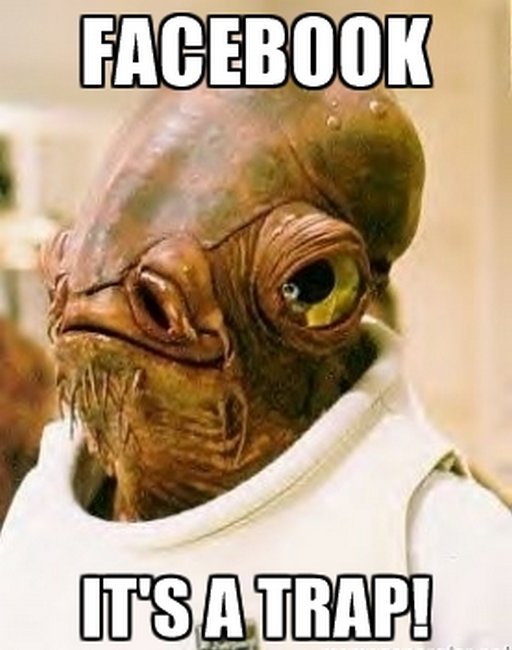Facebook Interview Promise: “It’s A Trap!”
Journalists, be very careful when calling out Facebook about problematic images of children. It appears Facebook may have recently baited pesky English journalists into a legal trap with the false promise of an interview.

Here’s how the apparent ruse went down. Facebook promised an interview to BBC journalists if the the journalists would first “provide examples” of problematic content (what the BBC terms “sexualised images of children”. Once the BBC did so, Facebook reported the BBC to the police for distribution of the images from its own system. Of course the promised interview never happened.
In the BBC’s own careful words:
[Facebook] encourages users to report inappropriate content via its “report button”.
The US firm says it has improved this system since an investigation by the BBC last year.
To test Facebook’s claim, the BBC used the report button to alert the company to 100 images which appeared to break its guidelines.
…
Of the 100 images only 18 were removed.
Next step:
The BBC first asked Facebook for an interview about its moderation system in late-2015, and repeated the request following this follow-up investigation.
The social network’s director of policy Simon Milner agreed to be interviewed last week, on condition the BBC provided examples of the material that it had reported, but had not been removed by moderators.
But that appears to have been a trap:
The BBC did so, but was reported to the UK’s National Crime Agency as a consequence.
The promised interview? Not forthcoming:
Facebook later provided a statement.
“We have carefully reviewed the content referred to us and have now removed all items that were illegal or against our standards,” it said.
“This content is no longer on our platform. We take this matter extremely seriously and we continue to improve our reporting and take-down measures.
“It is against the law for anyone to distribute images of child exploitation.
“When the BBC sent us such images we followed our industry’s standard practice and reported them to Ceop [Child Exploitation & Online Protection Centre].
“We also reported the child exploitation images that had been shared on our own platform. This matter is now in the hands of the authorities.”
Here’s the BBC director of editorial policy, commenting with true British understatement:
“One can only assume that the Facebook executives were unwilling or certainly reluctant to engage in an interview or a debate about why these images are available on the Facebook site.”
Similar Sex Blogging:
Shorter URL for sharing: https://www.erosblog.com/?p=18331








Saw this on the BBC’s “News at One” program today. Not sure if Facebook could have dug themselves any deeper in the brown pungent stuff.